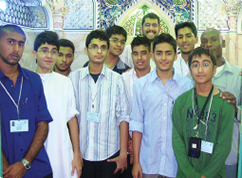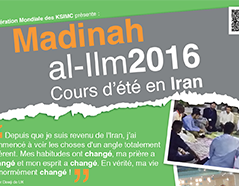SABEEL AND SUBUL
Dr Mahmood Y. Abdullah
Sabeel (way) has been mentioned in more than 100 verses of the Holy Qur’an. Among these, fi sabeelillah (in the way of Allah) is the most recurring phrase. These verses provide guiding principles in what constitutes reaching the way of Allah, through the way of the faithful or believers (mo’minoon). So who are the believers? By posing this question to the Qur’an, we are bound to get a straightforward answer: “The believers are only those who have attained faith in Allah and His Messenger [singular tense] and then have never doubted, and who have striven with their possessions and their persons in the way of Allah; it is they who are truthful” (49:15). There is no room for manoeuvre in this definition of believers.
So by recognizing the way of the believers, we are led to recognize a higher end per se, which is emphasized in the verse: “And this indeed is my straight path, so follow it, and do not follow [other] ways, for they will separate you from His way. This is what He enjoins upon you so that you may be righteous” (6:153).
Therefore, the way of Allah and His Messenger is the straight path; and that is the way of true believers. But there were other individual Messengers too. So the Qur’an clarifies beyond any doubt which Messenger is meant. “But those who have faith and do righteous deeds and believe in what has been sent to Muhammad and it is the truth from their Lord – He shall absolve them of their misdeeds and set right their affairs” (47:2). This is one of the verses in which the Prophet has been mentioned by name.
The Qur’an issues a word of warning: “O you who have faith! Indeed many of the scribes and monks wrongfully eat up the people’s wealth, and bar [them] from the way of Allah. Those who treasure up gold and silver, and do not spend it in the way of Allah, inform them of a painful punishment” (9:34).
The Qur’an also addresses the apologetic attitude which claims that the minority should sail with the tide of the majority. The Qur’an replies: “If you obey most of those on the earth, they will lead you astray from the way of Allah. They follow nothing but conjectures and they do nothing but surmise [pretend that something is true although it is not]” (6:116).
So the way of Allah is something and the way of the majority is something else. The Qur’an cautions: “Have you not regarded those who were given a share of the Book, who purchase error, and desire that you [too] should lose the way?” (4:44). This caution is supported by direct warnings to the People of the Book, which do not warrant any ijtihad, e.g. 3:98, 3:99, 5:77).
In conclusion, a clear distinction is drawn between sabeel (way) and subul (ways). Al Sirat al-Mustaqeem (the Straight Path) is only one and that is the way that leads towards God. Others are subul. But here is a word of consolation and invitation to the believers to reflect upon themselves: “O you who have faith! Take care of your own souls. He who goes astray cannot hurt you if you are guided. To Allah will be the return of you all, whereat He will inform you concerning what you used to do” (5:105).
Wallaho waliyat tawfiq.
Related News
There are several verses in the Holy Quran that establish the legality of seeking medium (waseelah) to gain divine proximity. These verses clearly reject the belief of the skeptics who reject all waseelah and term Tawassul as Shirk
Click here to read – The Argument of the skeptics against Tawassul
1) In Surah Maaedah (5): 35, Allah orders:
This small book contains
*** Main causes of a person being rich or poor;
*** Advantages and disadvantages of being rich and poor;
*** Remedies and solution to financial problems;
*** And much more.
INDEX
Good sides of wealthiness
Farming / Agriculture
Respectable poverty and its two sides
Increased Rizq and debts problem
Many useful Duaas
Things that increase Rizq
Things that decrease Rizq









